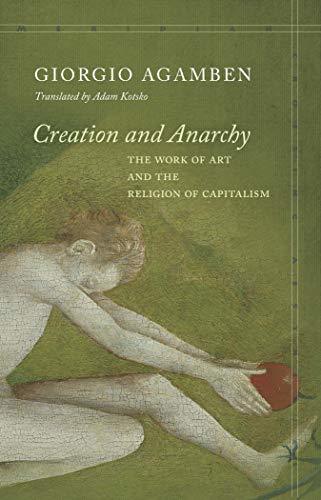What do you think?
Rate this book


Creation and the giving of orders are closely entwined in Western culture, where God commands the world into existence and later issues the injunctions known as the Ten Commandments. The arche, or origin, is always also a command, and a beginning is always the first principle that governs and decrees. This is as true for theology, where God not only creates the world but governs and continues to govern through continuous creation, as it is for the philosophical and political tradition according to which beginning and creation, command and will, together form a strategic apparatus without which our society would fall apart.
The five essays collected here aim to deactivate this apparatus through a patient archaeological inquiry into the concepts of work, creation, and command. Giorgio Agamben explores every nuance of the arche in search of an an-archic exit strategy. By the book's final chapter, anarchy appears as the secret center of power, brought to light so as to make possible a philosophical thought that might overthrow both the principle and its command.
105 pages, Kindle Edition
First published November 16, 2017